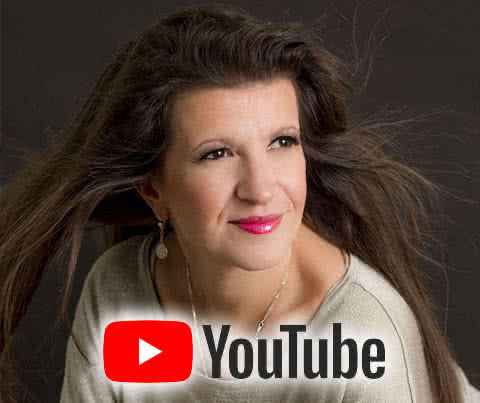Theory that support the Inborn Voice Vocal Coaching Method
The Inborn Voice method was born from an intuition by Mylena Vocal Coach, linked to her studies on oriental medicine and humanistic philosophy. It was also born from the need of her clients to be able to express and motivate their ideas. But nothing can be built without solid foundations, which is why the theory at the base of the Inborn Voice method, at that time science fiction, today is proving to be part of quantum physics.
Everything starts from a theory
Anyone who wants to be a trainer must know at least the theory of general principles relating to the voice and everything related to it. More and more often I meet people who have attended some kind of voice training and who do not even know how to explain the purpose of the exercises they practice.
We have all learned how to use our voice intuitively, but none of us can relate the various communication problems that we face in our daily lives with the wrong use of our vocal expressiveness. From a school interrogation to a romantic meeting, from a job interview to a lively altercation: often we find ourselves noticing how unfair the treatment we have received is, blaming others in every way, without stopping for a moment to realize that perhaps it was our communication that transmitted something different from our intentions.
I deliberately will not include descriptions of anatomical parts or physiological mechanisms of the human body within this website: such descriptions are already available through specialized manuals or the Internet to all of you. This does not imply that I disregard all these aspects, but only that it is necessary to know and understand them before all the others. For the purposes of this website, you must understand at least this single step: in any training course, it is never essential to stop and look at and investigate the individual details if you do not have a clear vision of the whole.
This is the mistake, more or less unintentional, of many teachers who consider all the students as identical. Every one of us is unique and incomparable.
It is like a primary school teacher demanding that all his class learn from memory the concept "1+1=2". Instead, a good teacher has the duty to make the students understand which calculation system supports the correct answer, otherwise, when the student will have to calculate "2+1" by themselves, they will not be able to find the correct answer.
In everyday life, this kind of information is not important for two reasons: it is always available in books and each of us is perfectly aware of what we use and put into practice every day.
For me, the important thing is to have a clear path to follow, and not to leave out the whole vision. This is the only way to improve a voice.
Solid foundations are required
Every new learning can be based only on solid foundations. All of you will be familiar with the parable of the house built on the sand that collapses at the first gust of wind because it has no solid foundation: those who build their voice on the sand, without certain foundations, have only the illusion of reaching a goal quickly. Actually, all the expressive possibilities of the natural voice are precluded precisely because the training ruins the raw material: the vocal cords. Those who instead build their own vocality on solid foundations will come to obtain a granitic and indestructible voice.
In present-day society, many of the traumas associated with a problematic voice are linked to bad training, whether conscious or unconscious: our brain is able to metabolize a voice training in a few moments, either good or bad. Immediately and unconsciously it becomes part of us.
Other times the issue is to be found in childhood when silence was continually imposed by adults. It seems rather strange that parents spend the first few years trying to make us talk and the rest of our lives making us remain silent. Some of us have such strong imprinting about "not screaming" that when they speak with a full voice they automatically feel they are screaming.
Occasionally, traumas arise during puberty, when you don't want to grow up or you don't want to accept a romantic rejection.
Every voice-related training is by definition a long-term project, because every learning, good or bad, will be there forever and will accompany us for the rest of our lives, even if subconsciously. Do not think that any vocal teachings will remain confined to the class only: they will become part of your life, whether you want them or not.
The new generations are spending more and more time alone or in silence and have little chance to experience vocal skills with which they are naturally gifted. They even believe that a beautiful voice is a precious gift, reserved for few chosen ones.
There is no difference between those who can speak well and those who can sing well: both take advantage of the vocal expressiveness of the human being. If you listen to a good lecturer, you will realize that his words are, in fact, music. If you have ever fallen asleep during a speech, perhaps an interesting one, it's because the person who was holding it was using a monotonous phonation similar, even in its effects, to a lullaby.
The problem of the ever-increasing written "Digital" communication is evident to all: often a written sentence is considered self-evident, but the other part totally misunderstands it. Other times three questions are written in a single message, but we receive the reply only at the first one. This is the normal way of working of our brain. It has evolved through social-relational interaction: not foreseeing the absence of the emotions of the written form, each reader will insert those he considers most appropriate according to his expectations.







